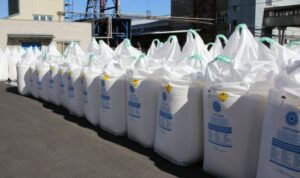
Ostchem’s nitrogen holding plants produced 515.5 thousand tons of mineral fertilizers in the first quarter of 2023, up 36.2% year-on-year, Group DF said in a statement on Friday.
According to it, Cherkasy Azot produced 387.4 thousand tons and Rivneazot produced 128 thousand tons, while Azot produced 137.8 thousand tons in March, the maximum since the beginning of the full-scale war.
“Lower gas prices have reduced the selling prices of mineral fertilizers. As fertilizers became more affordable, we started selling more and showed very good results. This spring, the high utilization of enterprises lasts longer than usual,” a comment by Oleg Arestarhov, head of Group DF’s corporate communications department, is quoted in the report.
It is pointed out that the key products produced by Ostchem plants were urea, UAN (Urea Ammonium Nitrate Network), ammonium nitrate, and lime ammonium nitrate (LAN). Urea output in the first quarter increased 4.7 times, to 106,500 tonnes, and UAN output 2.1 times, to 108,500 tonnes.
Production of ammonium nitrate increased from 217.1 thousand tons to 255.4 thousand tons, while UAN production fell from 62.3 thousand tons to 10.6 thousand tons.
“The structure of production corresponds to the structure of demand. The further demand will determine the production load of the plants, the terms of the repair campaign,” Arestarhov pointed out.
Among the new market trends the company highlighted the active supply of fertilizers in the de-occupied territories (Kherson, Nikolaev, Chernigov and Sumy regions). And among the factors constraining the growth of the fertilizer market, it noted an increase of marketing and logistics risks of agribusiness, such as the uncertainty of the prospects for a grain agreement, and restrictions on imports of Ukrainian grain, introduced in April 2023 by some EU countries.
As reported in early February, Group DF’s nitrogen holding Ostchem reported on the planned increase of its capacity utilization for the production of mineral fertilizers at Cherkasy Azot from 30% to 70%, and Rivneazot – up to 50% due to the seasonal increase in demand
Group DF earlier estimated the volume of consumption of ammonium nitrate by the Ukrainian market in 2022 at 1 million tons (import – 330 thousand tons); urea – 410 thousand tons (import – 225 thousand tons); UAN – 580 thousand tons (import – 190 thousand tons), stating that the expected increase in fertilizer consumption in 2023 by 15-20%.
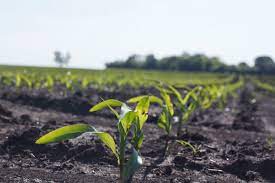
During the sowing season 2022, Ukraine sowed 11.84 million hectares of land with the main agricultural crops, which is 82.2% of the 14.4 million hectares planned for the current season, including 1.94 million hectares, the Ministry of Agrarian Policy and Food announced on Friday.
According to the data published on its website, as of May 19, the area under sunflower crops is 3.94 million hectares (80% of the 4.93 million hectares planned for 2022), corn – 4.17 million hectares (86% of 4.85 million ha), spring barley – 927,500 ha (92.6% of 1.02 million ha), spring wheat – 188,600 ha (99.4% of 189,600 ha), oats – 156,800 ha (95.8% of 163,600 ha), peas – 124,800 ha (86% of 145,700 ha).
In addition, the sown area under potatoes is 1.07 million hectares (90% of 1.19 million hectares), soybeans – 728,600 ha (78.6% of 1.25 million ha), sugar beet – 182,000 ha (88% of 206,900 ha), spring rapeseed – 28,400 ha (95.3% of 29,800 ha), millet – 32,100 ha (51.5% from 62,300 ha), buckwheat – 37,400 ha (46% of 81,600 ha).
“The sowing season in Ukraine continues. As a result, almost 98% of the areas projected for spring wheat have already been sown,” the Ministry of Agrarian Policy said in a statement.
In addition, in 2021, winter crops were sown for the 2022 harvest on a total area of 7.7 million hectares, including 6.5 million hectares of winter wheat, 1 million hectares of barley and 0.16 million hectares of rye.
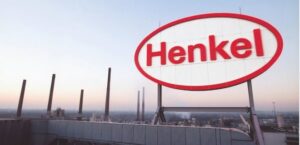
Henkel, an international company headquartered in Dusseldorf, Germany, has announced the resumption of two of its four factories in Ukraine.
According to a press release, the decision to resume production of the international company Henkel in Ukraine is made by the local leadership of Henkel Ukraine, based on the current military-operational situation.
The plant in the Lviv region, which specializes in the production of building mixtures of the Ceresit brand, was the first to resume operations.
Soon Henkel plans to resume the activities of the company’s plant in Vyshgorod, Kyiv region.
In total, Henkel Bautechnik (Ukraine) manages four factories in the country for the production of building mixtures. The company has suspended the work of all production facilities since the beginning of the war – on February 24, 2022.
At the moment, the work of two other production facilities is impossible, since they are located on the territories of Ukraine temporarily occupied by Russian troops in the Kharkiv and Kherson regions.
As noted in the release, to support its employees and their families, Henkel has fully maintained the payment of wages, even despite the temporary suspension of production.
In the early days of the war, Henkel launched a solidarity aid program worth more than EUR1 million, most of which went directly to more than 600 employees as emergency financial assistance. Henkel also provided safe housing for its employees and their families forced to leave Ukraine.
At the same time, Henkel has expanded its solidarity program to a total of more than EUR5 million, including product donations and comprehensive collaboration with long-term social partner Habitat for Humanity.
In early March, Henkel announced that it was stopping new investments in the Russian Federation, as well as stopping advertising campaigns in state media and all sponsorship activities. Subsequently, the company officially announced the decision to stop its activities in the Russian Federation.
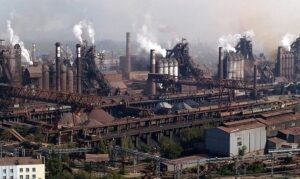
LLC “Zaporozhye Casting and Mechanical Plant” (ZLMZ), created on the basis of the production workshops of the department of the chief mechanic of PJSC “Zaporizhstal”, which is part of the Metinvest group, has resumed its work.
According to the company’s information on Sunday, earlier the Metinvest group decided to withdraw the main equipment of ZLMZ from the conservation regime, while before that only duty teams came to the workplace to maintain the equipment in proper condition.
“We have every reason to resume work: the military situation in Zaporozhye is under control, we have received both standard orders and unique requests from customers, so now we are making every effort to fulfill them,” the words of the acting are quoted in the message. Director General of ZLMZ Igor Dolgozvezda.
It is specified that the plant has resumed the work of the main divisions: a mechanical workshop, a metal structure workshop and a section for the production of shaped castings. Currently, the Zaporizhia Casting and Mechanical Plant is planning to produce and restore parts for Metinvest enterprises – Zaporizhstal, Kametstal, Metinvest Pokrovskugol and mining and processing plants of the Metinvest group. The company is also mastering the production of new types of products – spare parts for mining and lifting vehicles.
Yury Dmitriev, the head of the ZLMZ machine shop, pointed out that after the information about the resumption of production, the workers immediately expressed a desire to return to work, and some employees even began to return from abroad.
“Before the war, we worked on a day/night/48 or 5/2 schedule. Now our workers are ready to work around the clock to load the equipment to the maximum and produce the maximum product,” Dmitriev said.
Work shifts for employees have been adjusted to reflect the curfew. The enterprise provides centralized transportation of workers by corporate transport.
According to the decision of the company, the priority right to employment for open vacancies of scarce professions at ZLMZ is granted to specialists evacuated from Mariupol to Zaporozhye.
It is indicated that the company is gaining pre-war momentum and even working on new technologies so as not to depend on foreign supplies.
The press service also reports that ZLMZ employees, as volunteers, joined the work of the Center for the Coordination of the Humanitarian Mission of Metinvest in Zaporozhye from the first days of its creation, taking part in the reception, sorting and formation of cargo with humanitarian aid and coordinating the reception of internally displaced persons at social facilities companies in Zaporozhye.
LLC “Zaporozhye Casting and Mechanical Plant” (ZLMZ) was established on the basis of the foundry and mechanical shops, as well as the shop of metal structures of the plant “Zaporizhstal” in mid-2016. At the same time, the steel plant remains the main partner of the plant, which is a diversified enterprise with a closed production cycle.
ZLMZ specializes in the production of castings from cast iron, as well as from alloyed, low-alloyed and high-alloyed steels, metal structures and metal parts. The company produces a wide range of products, which includes molds for metallurgical plants, building structures, spare parts and prefabricated assemblies. The main consumers of the plant’s products are enterprises of the mining and metallurgical and other industries.
The plant is part of the Metinvest group, the largest mining and metallurgical holding in Ukraine. The main shareholders of Metinvest are the SCM group (71.25%) of Rinat Akhmetov and Smart Holding (23.75%) of Vadim Novinsky, who jointly manage the company.
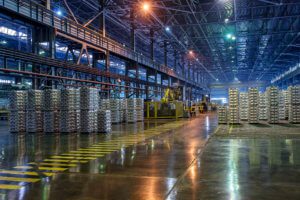
Czech Sweetondale has finalized a deal to acquire three construction materials plants from Russia’s Technonicol and seeks to invest EUR 3.5 million in modernization of Cherkasy-based Techno Plant, Sweetondale CEO Tichomír Lelovics said during a press tour at the enterprise on Wednesday. He said that the company closed the deal to buy the mineral insulation plant in Cherkasy and two plants producing polymeric insulation and bituminous-mineral materials in Kamianske in February 2018.
“In the near future, investments are planned around EUR 3.5 million [in Techno Plant in Cherkasy]. A special emphasis will be placed on improving the quality of products and increasing production. By the end of 2018, it is planned to increase production to 1.5 million cubic meters of mineral insulation,” Lelovics said.
According to Oleh Khodakovsky, the director of the Techno Plant, investments will allow to increase production by 10-15%. According to him, for January-May 2018 the plant produced 600,000 cubic meters of mineral wool and it is boosting production in the period of preparation for the heating season. According to Khodakovsky, by now the company’s share of the Ukrainian mineral thermal insulation market is 41%.
At the same time, he said that the total market volume in 2017 was 215,000 tonnes, and in 2018 it would increase to 230,000 tonnes. Prices for mineral wool for the year grew by 5-7%.
CONSTRUCTION MATERIALS, CZECH SWEETONDALE, PLANTS, RUSSIAN COMPANY